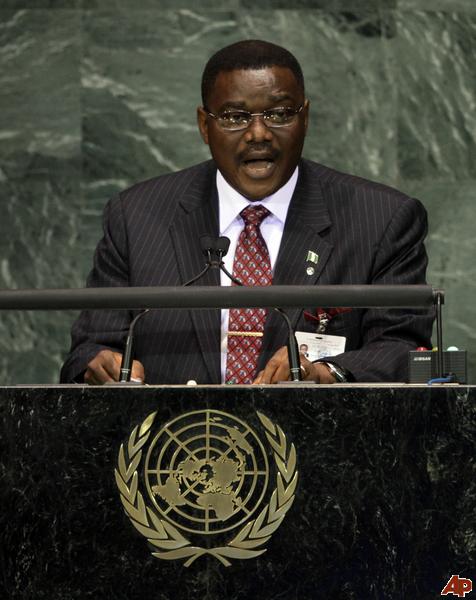This article first appeared in the new country edition of AFRICA HEALTH
In the last four years of the Yar’Adua/Jonathan presidency, Nigeria had four Ministers of Health.
It all started with Professor Adenike Grange, who had an impeccable reputation as a paediatrician and academic. Nigerians had a lot of hope in her leadership. But, her service hardly got off the ground when she lost the office following corruption allegations and an EFCC investigation. Then came Mr Hassan Lawal, who combined this portfolio with the Ministry of Labour for a few months. Mr Lawal too is currently facing corruption charges for dealings when he was subsequently given the lucrative Ministry of Works to manage. After Mr Lawal’s short tenure came the well publicised battle between Professor Akunyili and Professor Osotimehim following a cabinet reshuffle, with the later winning and becoming the Minister of Health. He had great plans for the Ministry, transversing the country to get support for his National Strategic Plan for Health, using the approach he used when he was director of the National Agency for the Control of AIDS. But he had hardly settled down to implement the plans when President Yar’Adua passed away and he lost his position to the intrigues of his positioning during the 3 months of uncertainty relating to the former president’s health. On the emergence of Goodluck Ebele Jonathan as president, he sought out a new leader and found Professor Christian Onyebuchi Chukwu in the quiet confines of Ebonyi State University Abakiliki, from where he was offered the Ministry of Health to lead. Most of the barely one year he has had in office has been spent navigating industrial disharmony with strikes across the country. The four Ministers in four years have been an unmitigated disaster for the Nigerian health sector, not necessarily for a lack of capacity but for a lack of time to deliver on their goals. The losers in all this have been the Nigerian people. The health sector has not benefitted from the sustained leadership necessary to make real progress on people’s lives.

But, why does leadership matter? The problems facing our health sector in Nigeria are often over-simplified as relating to the lack of funding, appropriate technology and human resources. These are all true, but do we really think that given the resources, equipment and personnel our hospitals will be buzzing with activity and our immunisation programmes would work? I don’t think so! I would suggest that the single biggest challenge in all our health institutions from the Ministry of Health to our health institutions in Nigeria is one of leadership. Now more than ever, we need leaders who will develop innovative policies and programs, and assure that systems are maintained and improved, within whatever resources they have available.
The ambitious agenda for the rapid development of Nigeria by 2020 in line with the Federal Government’s Vision 20 2020 programme would require transformation in the way public services are delivered. The population must feel that they own the public services and they are getting a service that is appropriate and efficient. Yet this transformation has to be done within the limited resources available due to the economic realities of our time. All the investments in the infrastructural development of the health sector undertaken by current and previous governments may go to waste if there is not an accompanying change in attitudes of those that deliver public services to the people; public servants. This is most urgent in the health sector.
There is political capital to be gained in transforming the Nigerian health sector, but this transformation is a little more complex than bringing Julius Berger to build great infrastructure. The health sector is complex and requires competence, passion, and resolve. As the president deliberates on his new team of Ministers, we urge him to pay particular attention to the next Minister of Health. Once he has chosen his Minister, he must assure him of the time to deliver on his programmes and empower him with the space to do so.
We must not underestimate the challenges faced by the Nigerian health sector. The Nigerian health sector has to respond to outbreaks of old diseases like cholera and measles as well as the increasing burden of chronic illnesses, increasing patients’ expectations regarding the quality of health care they receive, escalating labour union demands and resource constraints. This makes leadership all the more critical. We cannot afford to get it wrong this time. We eagerly await the appointment of a new Minister of Health (or the reappointment of the present one) who will take the Nigerian Ministry of Health to the next level; a minister that will be able to empower his staff to deliver and communicate to the people his vision for our future.
Leadership matters to the health sector now more than ever before. It matters at the ministerial level but it also matters at all levels in the Ministry of Health, its parastatals and tertiary hospitals. Business-as-usual is not good enough any longer.
We must put our best foot forward!
Never doubt that a small group of thoughtful committed people can change the world; indeed it is the only thing that ever has…Margaret Mead


